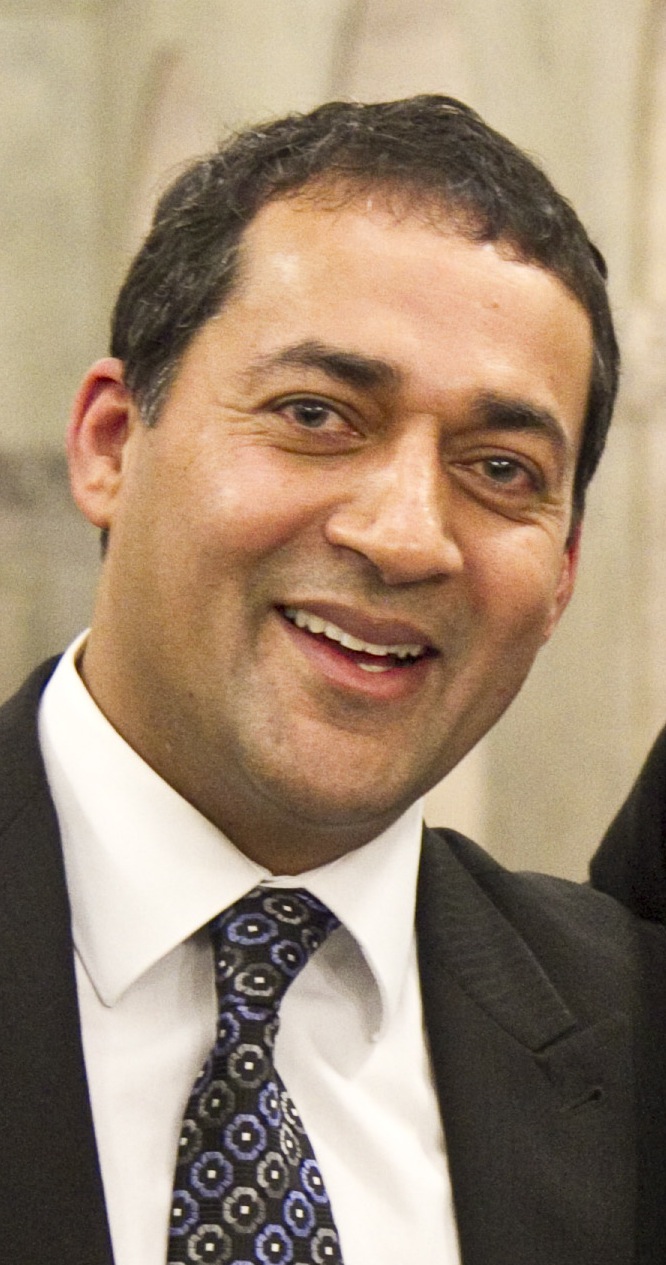Can the Alberta Liberals survive the election of Dr. Raj Sherman as their leader?
This question has to be asked because the probability now seems quite high that Sherman will in fact win the Liberal leadership on Sept. 10.
Sherman has said and various media have reported that the former Tory MLA for Edmonton-Meadowlark has registered about 18,000 of the party’s approximately 27,000 eligible voters. The number of eligible voters is so high for a party with low membership and relatively weak support because the party adopted rules that allow even non-party-members to vote without paying a fee.
And Sherman is without doubt popular among many members of the Alberta general public, thanks to his very public rebellion last fall against Premier Ed Stelmach and the rest of the Conservative caucus over their handling of the health-care file. The perception that a campaign was orchestrated against him by Tory insiders who tried to question his mental stability hasn’t hurt his Liberal candidacy, given the party’s liberal voting rules, one bit!
In addition, Sherman is an engaging and intelligent man whom people tend to react to with favour. As an emergency room physician involved in a high-profile battle with his own party over health policy, a lot of Albertans give him some credit for knowing what he’s talking about. So, unlike all of the other candidates — including a couple of veteran Alberta Liberal MLAs who have served their party well through thick and thin — he now possesses extremely high name recognition.
Moreover, none of his opponents seem to have been able to inspire the public imagination. Opposing him are the two hardworking but relatively low-profile Liberal representatives — Edmonton-Gold Bar MLA Hugh MacDonald and Edmonton-Centre MLA Laurie Blakeman — and two virtual unknowns from Calgary, Bill Harvey and Bruce Payne. Payne is both an evangelical preacher and trade unionist, and Harvey seems determined to occupy a position to the right of the Wildrose Alliance.
So it is said here that if all those voters show up in 11 days, high name recognition plus a wide-open voting process plus lots of supporters from outside the party’s traditional ranks plus low-impact opponents will add up to a slam-dunk victory for Sherman when the Liberals replace outgoing leader Dr. David Swann, also a physician.
That will generate some headlines, but it ain’t necessarily good news for the Alberta Liberal Party. This is because there are several pretty obvious problems with Sherman as a leader from the Liberals’ perspective.
Above all, he’s a one-issue politician who doesn’t really care about the party or any other policy except his prescriptions for health care. What’s more, while lots of potential Liberal leadership voters may be comfortable with his insistence that he’s the guy with all the answers, one imagines a shrewd opponent could work pretty effectively with that in a general election.
Remember, this is a guy who said, apparently without irony, that “within 24 months, I can fix the health system. … I am the national expert.”
Related to this is the fact that Sherman is not really a Liberal — he’s a Tory who became an Independent when he had a very public bust-up over health policy with the party under whose banner he ran.
Some readers will ask, what’s the big deal? And it’s true, lots of politicians change horses in mid-stream in Alberta politics. But the Liberals, who for years have managed to hang on to a deeply loyal core vote mostly in the Edmonton area, are in very shaky condition right now. There’s another party — the Alberta Party — that essentially shares their program and includes many of their former members. Their caucus appears to be crumbling at a moment when it should have been able to hope to make significant gains.
In such circumstances, can the Alberta Liberals really thrive under a leader who could care less about traditional Liberal values and positions, let alone traditions, and whose legislative interest does not extend beyond one single policy area?
Finally, there is the delicate matter of Sherman’s mercurial nature. There is no doubt that he was treated shabbily by some members of his former party, who really seem to have made an effort to spread the notion he was suffering from mental instability. His credibility was not hurt by the media revelations soon thereafter that such accusations seemed to be standard operating procedure in certain quarters when any physician dared to criticize the health-care system.
But no sensible person can read Sherman’s Nov. 17, 2010, email without thinking that, at the very least, sending it was an impulsive decision that displayed questionable judgment.
This combination of factors bodes ill for the Alberta Liberals if they choose Sherman over MacDonald or Blakeman, both of whom have what it would take to preserve the party’s traditional vote and lead it through this difficult period until a more charismatic leader emerges.
It seems probable that if this speculation is right and Sherman wins, the party will enjoy a small boost from the media attention that will follow the election. It will likely last about a week — until the Conservative leadership vote seven days later generates its own excitement.
It seems unlikely Sherman will be able to sustain things much longer than that with a one-issue campaign, and that traditional party supporters will abandon ship soon thereafter with an impulsive captain unconcerned about their ideas and traditions at the helm. Indeed, signs of such fissures were becoming apparent at the final party all-candidates’ forum, last night in Calgary.
If this happens, it will be a disaster for the party, and quite possibly the end of the Alberta Liberals.
Sorry, but no matter how good he looks this week, Raj Sherman still doesn’t have what it takes to be a successful Liberal leader and the Liberals will regret it if they choose him.
This post also appears on David Climenhaga’s blog, Alberta Diary.




